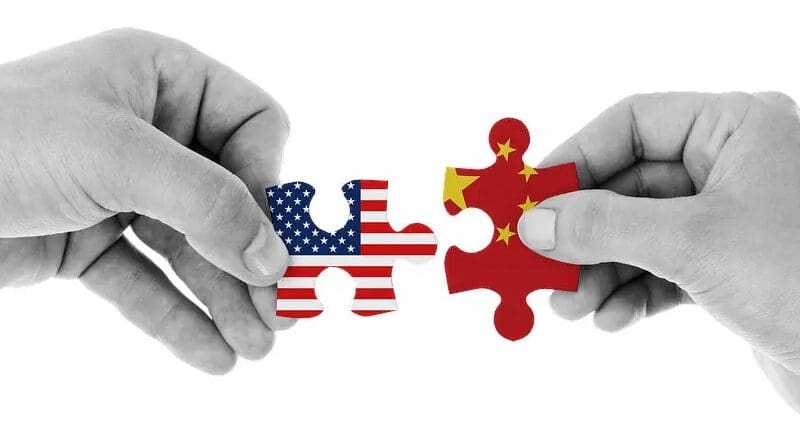What Is The US Afraid Of China Actually Doing? – OpEd
By IDN
By Richard Hanania*
Across the political spectrum, there is widespread agreement that America must get serious about the threat posed by China. As the Trump administration comes to a close, the State Department has just released a document called ‘The Elements of the China Challenge’. A distillation of conventional wisdom among national security experts and government officials, it argues that the U.S. needs a concerted effort to push back against Beijing. On its first page, the document tells us that “the Chinese Communist Party (CCP) has triggered a new era of great-power competition.”
If there was a major intellectual thread running through Trump’s foreign policy, or at least that of the people he appointed, it was that confronting China was the national security issue of our time. America during the Trump era was single-minded in its focus on turning up the pressure on Beijing, including unprecedented support for Taiwan, sending ships more often through the South China Sea, and attempting to stop the spread of the telecom giant Huawei.
The idea of the China threat will not end with the Trump administration. Michèle Flournoy, once thought to be the frontrunner to become Biden’s Secretary of Defense, argued in Foreign Affairs that the U.S. has not been steadfast enough in its military commitments in East Asia. [. . .]
But what are we afraid of China actually doing?
[. . .] China’s true menace is neither military nor geopolitical, but rather ideological. Its continuing success, even if it in no way harms the prosperity or security of most Americans, poses a major threat to the American political establishment, how it justifies its own power, and its understanding of the U.S. role in the world.
In the last three decades, China has experienced a rate of economic growth unprecedented in modern history. Between 1990 and 2019, GDP per capita increased 32 times. In terms of total GDP, China may become wealthier than the U.S. in the next two decades—and by some measures, already is. For the sake of comparison, in 1980 the Soviet Union had a GDP that was about 40% that of the U.S., with the trendlines actually favoring the West.
Recently, when the economist Branko Milanovic suggested that the Nobel Prize in his field should go to scholars who study the most important questions out there, he pointed to Chinese growth as an example, calling it “40 years of the most extraordinary increase in income for the largest number of people ever.”
This would be frightening if the U.S. and China coveted territory from one another. Azerbaijan’s recent military victory over Armenia in the conflict over Nagorno-Karabakh can be attributed to the former growing economically, and therefore militarily, stronger than the latter over the last two decades.
Yet the two modern superpowers are on opposite sides of the world and have no similar dispute between them. It is true that the U.S. seeks to preserve the territorial integrity of allies and partners, such as Taiwan and Japan, that may be threatened by Beijing.
The incoming Biden administration will likely have a policy of willingness to defend the Senkaku Islands, an uninhabited five rocks and three reefs that the U.S. considers part of Japan. But why America should risk nuclear war over this issue is rarely explained.
To the extent such objections are addressed, they are buried under appeals to morality that forgo any kind of cost-benefit analysis, and buzzwords such as preserving an undefined sense of American credibility or the broad goal of reinforcing deterrence.
Another idea, popular among pundits and the general public, is that Chinese growth is necessarily bad for the U.S. But in reality, Chinese growth has so far directly benefited U.S. consumers: it is undisputed among economists that trade with China made America better off by lowering the price of goods.
Despite the temptation to political amnesia, the fact is that U.S. policy privileged these economic gains for many years, and its relationship with China was explicitly informed by these political decisions.
While this has undermined U.S. economic capacity in important ways, the cause wasn’t cheating, trickery, or even growth on the part of China. Instead, the cause was the success of American policy priorities. If there is a problem, it is most immediately that those priorities were misguided.
The U.S. has the right to conduct trade on its own terms. It can choose what kind of strategy it wants in trade negotiations and is free to deal with the downsides of neglecting domestic industry and increased competition for jobs through whatever means it considers appropriate. To see China as a civilizational enemy over such issues, however, is bizarre.
The same is true regarding IP theft. While the practice has been estimated to cost the U.S. hundreds of billions of dollars a year, it is nonetheless normal for developing economies, with South Korea and Taiwan having had similarly bad records as their economies began to grow.
* The author is the President of the Center for the Study of Partisanship and Ideology and a research fellow at Defense Priorities. He holds a PhD in political science from UCLA and JD from the University of Chicago. The following are excerpts from the article, which was originally published at Palladiummag on December 29, 2020.

